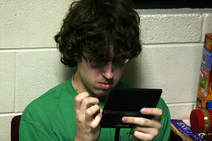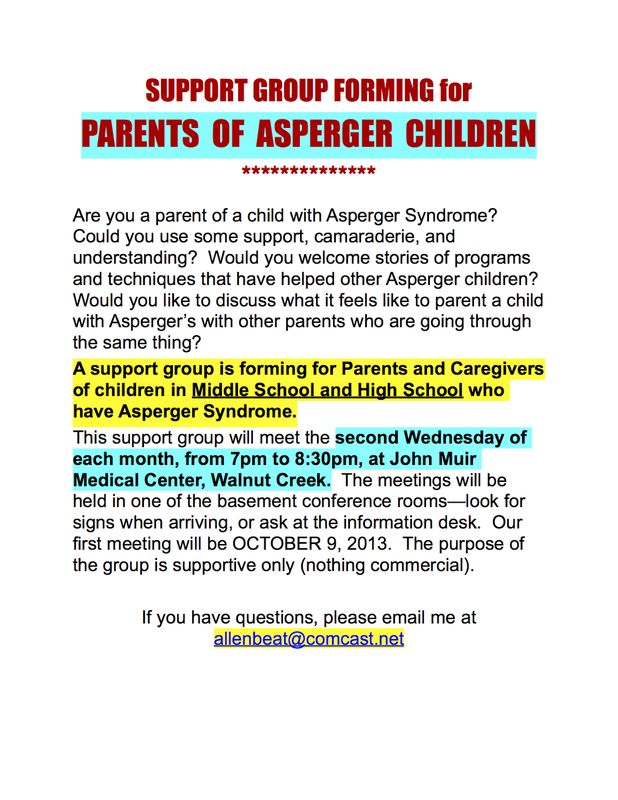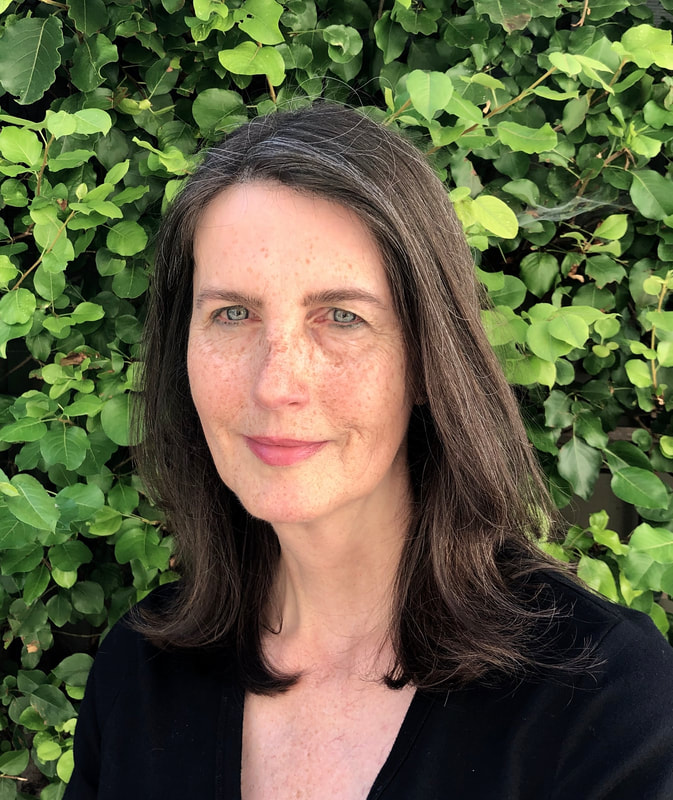 Do individuals with special needs, like ASDs and ADHD, get caught up in video game addiction more readily? OK, so maybe “Internet Gaming Addiction” is not an official disorder in the US. But, we know the behavior exists, whether or not it’s a separate disorder, or co-mingled with some other condition. What is the science on video game addiction and ASDs? In my therapy practice I focus on individuals with special needs like ASDs and ADHD. It’s pretty common for me to meet a child or teenager who has a habit of playing games for as much time as the parents will allow, whether that’s one hour a day or seven hours a day. The American Academy of Pediatrics recommends no more than 1 to 2 hours daily of screen time for any kids 2 and older, and none at all for younger children. And this recommendation is for typically developing kids, not those special needs kids who are already at a higher risk of having difficulties. Adverse risks the AAP cite include: “attention problems, school difficulties, sleep and eating disorders, and obesity.” So many of the kids I work with are already struggling with these problems - attention issues with the EF difficulties they may have, sleep and eating problems that go hand in hand with an ASD diagnosis, weight issues due to the medications these kids may need. It’s concerning! Dr. Micah Mazurek has done a great deal of research on the issue of screen use and ASDs or other special needs. (I’ve accessed many of her studies through my professional organization, but Google Scholar also provides access to a lot of her information so parents can read the studies, or at least the abstracts.) Her results add to my concern. In a 2012 study, Mazurek and Wenstrup compared television, video game and social media usage in kids with ASDs and their typically developing siblings. I wasn’t surprised by the results. The kids with ASDs spent more time playing video games than their typical siblings, and they spent more time playing games and watching TV than doing any other extracurricular activity. And the ASD kids spent little time on social media and socially interactive games. Finally, the ASD kids had more problematic behaviors around games, like difficulty stopping and using the games to manage their moods. Although I often hear the argument that games are a way to be social, the ASD kids were much less likely to play these games with others, either in person or online. Other Mazurek studies have found similar results, including the disturbing fact that kids with ASDs spend more time on video games than any other leisure activity. Kids with ASDs have more sleep problems and more oppositional behavior when their parents allow in room access to screen, and if there are no rules regarding usage. Another study from Mazurek found that boys with ADHD or ASD had a greater tendency to have problematic game use than typical boys. From other researchers, Chan and Robinowitz found a correlation between more than 1 hour a day of game play and more intense ADHD or inattentive symptoms. So what does this mean for parents of special needs kids? What if your child can only entertain himself with screens? What if it’s the only way he can calm down? What if games are the only thing he has in common with peers? What if you need a break and the screen is the only thing that gives you some time to relax? I’m sorry, this post is too long already. I’ll address those issues in my next post! Photo credit: Pixabay  "My son is addicted to video games!" That's a statement I hear frequently, whether the son is a small child, or a young adult. I hear this less often for girls. Although there are a lot of girls heavily involved in games, more often I hear about girls with heavy use of texting and social media. But, for males, so often the gaming, whether on a console or through the internet, can take up as much time as the parents allow. Officially, there is no such thing as video game addiction, at least in the US. China does call it an addiction, and there are treatment programs there and elsewhere. Currently, the DSM-5™lists Internet Gaming Disorder as a condition for further study. It's unfortunate they chose to call it that, because the technology will surely outpace the research, and the behavior around compulsive game play could be the same even if the Internet is not the vehicle of connection. The text in the DSM does allow for the idea of non-Internet computerized games, but it seems like this is going to be very confusing. (Is this a DSM theme, reminiscent of the confusion surrounding non-hyperactive Attention Deficit Hyperactivity Disorder?) The APA, the organization that compiles the DSM and looks at the research, has set up some proposed criteria. As always with disorders, there must be impairment or distress. Then we can look at the issues: preoccupation, withdrawal, tolerance, unsuccessful attempts to cut back, loss of interest in other things. It's looking a lot like what they've written for chemical dependence or gambling addiction, which were the models for this section after all. In the detailed text, the DSM refers to individuals neglecting other activities, missing sleep and food, playing at least 30 hours a week, and becoming angry or agitated if they can't play. All these official details are fine, but for most parents who are worried, the issue of video game addiction comes down to common sense rather than research consensus. Is your child missing out on social, physical, and professional or educational activities because of game time? Is your child using gaming to manage emotions like anxiety, loneliness or boredom? Does your attempt to manage the time result in meltdowns? Is your child developing the important skills of learning to tolerate boredom or complete a task that doesn't reward with exploding rockets and buzzers? Stay tuned for my next post, where I discuss video game addiction specifically for individuals with special needs. photo credit: <a href="http://www.flickr.com/photos/30806435@N04/4298824267">Playing DS</a> via <a href="http://photopin.com">photopin</a> <a href="https://creativecommons.org/licenses/by/2.0/">(license)</a>  It's well known that kids on the autism spectrum struggle with generalizing learning from one setting to another. Simon Baron-Cohen explains this by way of the extreme systemizing theory of autism, where autistic individuals set up rules to understand the world, and those rules don't easily generalize from one situation to another. I think this difficulty is clearly apparent in social situations. So often, I've worked with children who could teach the content of a social skills class, yet they struggle to apply those same skills in any meaningful way in their own lives. That's why I like to see experiential social skills training, rather than more didactic, instructional training. When an individual has the experience of doing activities with others, ideally with some support on the social skills involved, and he/she gets to apply the intellectual theories of social skills in a real, social setting, that person has the chance to practice, understand and learn those skills, rather than merely recite them. Experiential learning takes place in many settings, from a group project in the classroom, to sports teams, to hobby groups and camps. When I work individually with children and teens, I combine instruction on social skills to application, through here and now games and activities. Whenever I get the chance, I bring up what's going on socially, right in the session. I think the most useful part of many social skills groups isn't the skills discussion around the table, but rather the shared pizza time afterward. So what's the point of all this instructional theorizing? The experiential call to action! It's February, and not too soon to think about summer camps. There are so many good ones, with camping, Legos, robotics and computers, arts, sports, nature, and horses. Check out my resource page for my favorite Bay Area social skills camp choices or search online for activities your child will enjoy. photo credit: Johan Jönsson via Wikimedia Commons There is a new support group forming in Walnut Creek, CA for parents of Middle and High School age kids with Asperger's or Autism Spectrum Disorders. The first meeting is October 9, 2013, at 7 pm, at John Muir Hospital. See the flyer below for more information.
I just got this notice, and I'm really excited that this is available to local families:
We are pleased to announce a new CHADD Parent Support Group in Walnut Creek, beginning this month. Let's start off the new school year with tips and tools to help your child be successful. WHAT: Parent Support Group (drop-in). The purpose of our group is to develop and foster positive skills for parents of children with ADHD. WHEN: 2nd Wednesday of every month from 6:30 - 8:00pm; next meeting is Sept. 11th WHERE: Kaiser Mental Health Bldg., 710 S. Broadway, Walnut Creek (the bldg. next to Safeway on the corner of Mt. Diablo Blvd.) CONTACT: Sherry Chase, Ph.D., Coordinator - 510-433-9448 - [email protected] CHADD meetings are open to the public and free to CHADD members. A $5 donation is suggested of non-members, but no one is turned away for lack of funds. Become a CHADD member here and enjoy all the benefits of CHADD membership. Visit CHADD.org for more information about ADHD. Enjoy a $10 discount if you join or renew by 9/30/13 (promo code: chadd10off). Now that school is getting out for the summer, your family’s schedule may be a lot more relaxed. If your child has special needs, such as an Autism Spectrum Disorder, Asperger’s disorder, ADHD or ADD, organizational and executive functioning issues, or problems with social skills, the school year may have been extremely high stress. It’s great to be able to enjoy this more unstructured time, spend more time together as a family and take it easy. Without the pressures of school and homework, now is also the perfect time to help your child improve social skills for the upcoming school year.
If your child has been struggling with friendships, the summer months can be a great time for unstructured playdates. Many outdoor activities, such as playing in the pool, riding bikes, playing with water balloons or kickballs, are less organized and subtle than more conversational, indoor games. These can be a great opportunity for your child to interact with peers and have fun too. If your child struggles with basic athletic skills, such as swimming, bike riding, running or kicking, or even climbing on the monkey bars, the summer can be a time to work as a family to improve these abilities. Some kids really dislike sports, and have no interest in doing these types of activities, but school playgrounds do revolve around games. If your child can manage to participate, a new social avenue is opened. Kids who aren’t skilled at sports often don’t join in, and then their skills get even further behind. Playing as a family can remove the pressure that your child experiences in peer play. For kids who have spent the school year struggling with organization, the summer is the chance to catch up and get ready for next September. Work together to remove all of last year’s papers and books. Clear the desk and drawers so you have room to work in a more organized setting next year. This may seem far removed from social skills, but remember that the faster and more efficiently your child can finish homework, the more time there is left for other activities. Be sure to keep all these activities light and fun. Kids with special needs have worked hard all year, and so have their parents. You all deserve some time to enjoy each other. Image attribution: by Jairo [CC-BY-2.0], via Wikimedia Commons It's April, and time to finalize those plans for summer camps. I'm a big fan of camp experiences for special needs kids, and there are even some great options for older teens and young adults. Camps give kids a chance to experience social interactions in a relaxed atmosphere, and they have an array of professionals available to counsel and coach real time, as the interactions are going on. At school, teachers and yard duty personnel often try to do social coaching during the school day, but there just isn't the time for it to be a focus. Camps offer that focus. Here in the East Bay there are lots of options, from day camps to sleep away, for interests in horses, camping, technology and film. Older teens can sometimes take a leadership role as a Counselor in Training. I've listed the programs I'm aware at the resource page of my website patriciarobinsonmft.com. Please let me know of any others!
So many of the ASD or ADHD clients who come to see me are spending hours a day online or playing video games. And, they are often dealing with depression and social isolation as well. Of course, as an engineer, I well understand that correlation does not indicate causation But, as a therapist, I recognize that many of my clients have interest in social connections, and they want to have interesting lives, but the effort to do these things is pretty stressful. Video games provide an anxiety management tool, as well as an experience that is both immediately gratifying and at the same time low stress.
Along these lines of thought, The New York Times published an article titled Video Games and the Depressed Teenager. For now, excessive internet and video use is not technically an addiction, although it is a topic of further study in the new DSM 5, which is going to be published this spring. I think it’s important for parents and young adults to consider these results in deciding their standards for online activities in their own homes. Many parents think addition is an appropriate term, because they can see how their own kids and teens behave when they are deprived of their gaming time. For many, less screen time seems to result in calmer and happier moods. Both Alameda and Contra Costa Counties present annual transition fairs, designed to bring together young adults with special needs with the venders and agencies who can help them transtion to adult living situations and employment. Because the fairs only occur once a year, I encourage teens, young adults and their parents to attend these events early, so they can start learning about the services available.
Alameda is holding their 2013 Transition Fair this year on March 16. You can find more information on their Facebook page at http://www.facebook.com/events/411555572244926/. I just got a notice of a stage show on parenting an autistic child presented next week at the Dean Lesher Center in Walnut Creek. I haven't seen the show, but it has good online reviews. The show, A Real Man is October 26, 2012, at 8:15 pm.
Get more info at http://www.lesherartscenter.org/ |
Patricia Robinson MFT
I'm a licensed therapist in Danville, California and a coach for Asperger's and ADHD nationwide. I work with individuals of all ages who have special needs, like Autism Spectrum Disorders, ADD, ADHD, and the family members and partners of special needs individuals. Archives
February 2015
Categories
All
|




 RSS Feed
RSS Feed